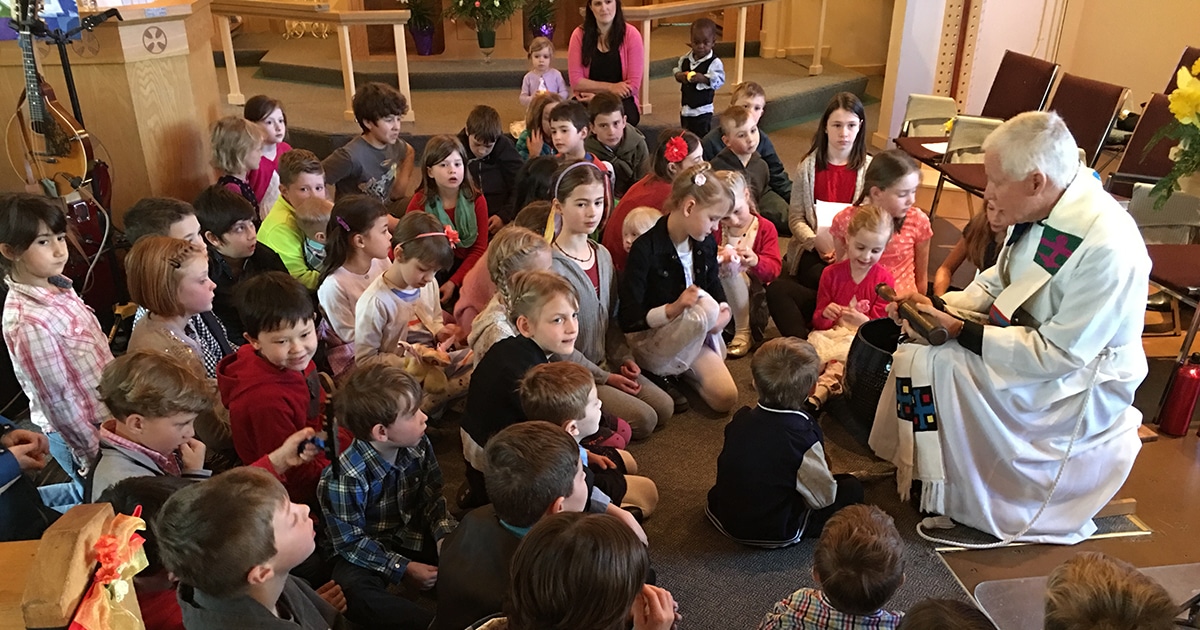The following is part of an ongoing monthly series on congregational development, which features reflections from Anglicans on how they are responding to the challenges facing churches today.
For Anglicans concerned about how to develop and grow their congregations, the Rev. Christopher Page has a simple suggestion on where to begin.
“I think the first thing they might do is stop worrying about developing and growing!” chuckles Page, currently parish priest at St. Philip Anglican Church in Victoria, B.C., and who previously worked in two Manitoba parishes.
The anxiety and stress engendered by a concern for numerical growth, he argues, can actually serve as a detriment to the well-being of the church.
For Page, congregational development starts with developing people’s spiritual lives, nurturing their awareness of Christ’s work in their lives, and encouraging them to co-operate with that work.
“I think we develop by concentrating on being the people God calls us to be,” he says. “And that is first of all a worshipping people, a praying people, a people of compassion and love and care.”
While never consciously seeking to be a “parish development person,” Page’s experience of more than 35 years of ordained ministry has given him plenty of food for thought on the subject.
In that time, he has witnessed tremendous changes in the context of ministry, such as the rise of the Internet and social media. One of the challenges for congregations and clergy today, he says, is the expectation to grow and sustain “what was” while also putting enormous energy into new approaches to ministry.
“All of the activities of what church used to be—home visiting, nursing home ministry, bazaars, rummage sales, tea parties … all that has to be maintained as it was in the ’50s,” he says. “And yet at the same time, clergy are being asked to go out there and launch bold new initiatives. It’s just not sustainable energy-wise.”
Whether the focus is on maintaining existing structures and activities or developing new approaches to mission, Page suggests that congregations must maintain a strong commitment to their chosen form of ministry, given the available resources.
Unlike other parts of the country, his own experience at St. Philip is not of a primarily aging congregation. He estimates the average age of Sunday morning worshippers as around 40 years old, with dozens of children and teenagers.
With younger families often very busy and other activities competing for their attention, Sunday worship remains the centrepiece of spiritual life for many. But attracting families with young children can mean embracing the concept of “messy” church, even on Sunday mornings.
At St. Philip, children at the Sunday service are able to play with Lego at a table set up near the back of the church. They can also play a special role in the service, coming up to the front as a group or listening to members of the congregation read a children’s story.
“I think we have to be really determined, if we want younger families, that we intend to welcome them, and that means welcoming them on their terms, and in the way that works for them, with children and with the commitments that they’re capable of,” Page says.
Where the focus of congregational development is more on mission than on maintenance, he notes, congregations and clergy must be clear on two major points.
“If in fact we believe mission is vital and more important than maintenance, then we have to acknowledge there’s a price to pay to giving up maintenance.”
However, if congregations wish to go out into the community and carry out mission “authentically,” they must be clear that they are not doing so merely to bring more people into Sunday worship.
Page offers the example of his congregation’s sponsorship of two Syrian refugee families in Victoria, where the first move was to put out a note to the community inviting them to join in sponsoring the families.
Following a large community meeting, a committee now exists of 20 people, which includes eight from the parish and 12 who do not belong to any church at all.
“They’re getting involved, they’re working, they’re communicating with people in the church, they’re getting to know me,” Page says of the latter. “But I honestly don’t believe any of those 12 people will come to church on the Sunday morning, and I have to be OK with that, if I’m genuine about saying I’m doing mission.”
“Mission is not ‘come to church on Sunday,’” he adds. “Mission is [that] we can find common ground in compassion and care and love, and we can find where God is at work, and we can join together in enhancing that and furthering that.”
Interested in keeping up-to-date on news, opinion, events and resources from the Anglican Church of Canada? Sign up for our email alerts .

